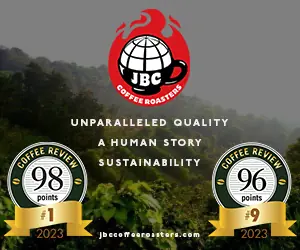The granddaddy of all cause coffees, and still the most impeccable in its credentials, is the organically grown category. Organics, as they are called in the coffee business, are coffees that are certified by third-party agencies as having been propagated, grown, processed, transported, stored, and roasted without contact with synthetic chemicals — particularly without contact with pesticides, herbicides, and various other-icides. The certification process is lengthy, thorough, rather expensive, and, so far as I am able to determine, largely reliable and free of abuse.
The organic movement is fueled in part by consumers’ health concerns. People are understandably wary of consuming agricultural poisons along with their vegetables.
With coffee, however, the health issue is less persuasive than it is with most other agricultural products — apples or carrots, for example, which we consume whole and often raw. We do not consume the fruit of the coffee tree. Instead, we strip the fruit off and compost it, retaining only the seed, which we then dry, roast at very high temperatures, grind, and soak in hot water. Subsequently we throw away the dried, roasted, ground seeds and drink the water. It seems unlikely that even the tiny amount of chemical residue that may or may not survive in the seed actually survives roasting and brewing to make it to the cup.
Early on, however, idealists in the coffee industry — people like Paul Katzeff of Thanksgiving Coffee, Gary Talboy, originally of Coffee Bean International, Karen Cebreros, one of the founders of Elan Organic Coffees, and David Griswold, one of the founders of Aztec Harvest — seized on the organic idea with a larger vision in mind. They saw that they could work with cooperatives of subsistence growers who had never used chemicals in their growing practices, help get these cooperatives certified as organic, and market their coffees directly to specialty roasters or consumers. By doing so they could assure the growers a premium for their coffee — organic coffee, like organic produce generally, retails for more than conventionally grown coffee — and make sure, through vertically integrated, direct marketing arrangements, that a good portion of that premium actually makes it back to the growers. Growers would make more money, take more pride in what they were doing, and the environmental advantages of organic procedures would be confirmed and institutionalized.
These early organic cooperative coffees — Aztec Harvest from Mexico, Inca Harvest from Peru, and others — were successful mainly on the basis of their stories. Their quality was often spotty, owing to the difficulty of bringing disciplined processing practices to large numbers of isolated subsistence farmers. Nevertheless, these pioneer organics were successful enough to encourage many other cooperatives, farms, mills, and, eventually, international development agencies, to pursue the same strategy. Today we have large-scale, internationally supported efforts to establish organic cooperative coffees from Haiti, East Timor, Papua New Guinea, and Sumatra, joining the many similar efforts taking place in Latin American countries and elsewhere.
Joining organic coffees produced by progressive cooperatives are coffees grown on larger farms that have successfully converted to organic procedures. Although most of these farms are in Mexico, Central America, and Brazil, the idea will doubtless continue to grow and establish itself in other parts of the world.
As more organic coffees come on the market produced in a variety of contexts, the overall quality of organics improves. Today, some organic coffees rival the finest conventionally grown origins in quality and distinction.










